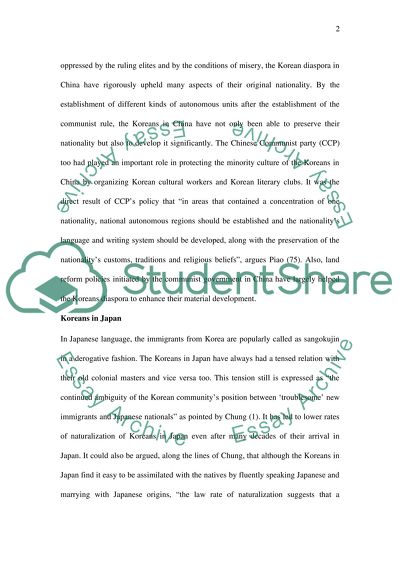Cite this document
(“Korean diaspora Essay Example | Topics and Well Written Essays - 1000 words”, n.d.)
Retrieved from https://studentshare.org/environmental-studies/1411421-korean-diaspora
Retrieved from https://studentshare.org/environmental-studies/1411421-korean-diaspora
(Korean Diaspora Essay Example | Topics and Well Written Essays - 1000 Words)
https://studentshare.org/environmental-studies/1411421-korean-diaspora.
https://studentshare.org/environmental-studies/1411421-korean-diaspora.
“Korean Diaspora Essay Example | Topics and Well Written Essays - 1000 Words”, n.d. https://studentshare.org/environmental-studies/1411421-korean-diaspora.


